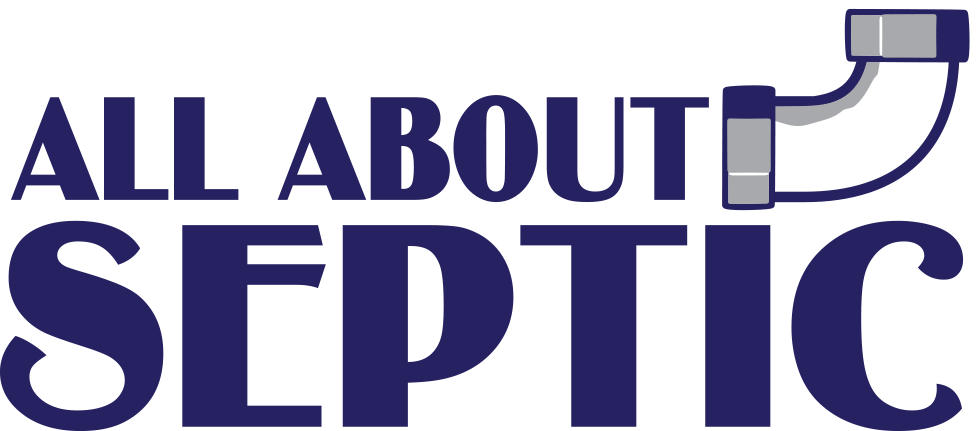Aerobic Septic System Tips
Septic System, Do These!
- Remove or prevent trees with large root systems growing near the drip field, unless you use a drip field.
- Run water regularly in drains that aren't used that often such as sinks, bath tubs, showers, etc. to avoid poisonous gases from collecting inside.
- Use water-conserving devices whenever possible. For example, low flush toilets and showerheads are commonly available at Home Depot or many other hardware stores.
- Make sure to spread your laundry work over the course of the week instead of doing many loads on a single day.
- Check your interceptor drain often to ensure that it is free flowing.
- Record the location of the main septic parts of your system for reference for future septic maintenance (i.e. septic pumping service or septic field repairs).
- Maintain a record of septic pumping service and septic maintenance.
- Check any septic pumps, septic siphons, or other parts that move in your system often.
- Schedule septic pumping service regularly.
- Keep any and all surface water from an upslope or from roof drains far away from the drip field or drip field, depending on which one you have installed.
- Have a manually cleaned lint trap on your washing machine.
Acceptable Products For Septic Systems Safety
Septic System Safe Dish Detergents:
We recommend using dish detergents that are concentrated, low-sudsing, have low-phosphate,
and are biodegradable. Also make sure they are LIQUID detergents:
- Oxydol
- Cheer
- Seventh Generation
- Boraxo
- Equator
- Arm & Hammer
- Amway S-A-8
- Dash
- Fresh Start
Septic Tank Safe Laundry Detergents:
- Planet Delicate Laundry Wash
- Mountain Green Ultra Laundry Liquid
- Oxy Prime Laundry Detergent
- Healthy Living Fresh Laundry Concentrate
- Country Save Laundry Products
- Ecover Ultra Washing Powder
- Restore Laundry Detergent
- Cal Ben Seafoam Laundry Soap
- Earth Friendly Laundry Products
- Seventh Generation Laundry Powder
- Planet Ultra Liquid or Powdered Laundry Detergent
- Bi-O-Kleen Laundry Powder
- Ecover Wool Wash Laundry Liquid
- Naturally Yours Laundry Detergent
- Sodasan Soap Washing Powder
- Charlie's Soap Laundry Detergent
- All Free and Clear Liquid Laundry Detergent
- Mrs. Meyers Laundry Detergent
- Dr. Bronner's Sal Suds
- Ecover Liquid Laundry Wash
- Seventh Generation Laundry Liquid
Toilet Paper
It is recommended that you use single ply toilet paper for your bathroom use. It breaks down in
your septic tank quicker and easier compared to a high ply count toilet paper.
- Northern
- White Cloud
- Members Mark
- Scott
- Angel Soft
Cleaning Products:
We recommend using non-ammonia, non-chlorine, non-toxic, non-antibacterial and
biodegradable cleaning products. Most all-natural cleaners are septic safe. Vinegar and lemons
in water is a great cleaning agent!
Aerobic Septic System, Don't Do These!
- Don't use garbage disposal too often. Chopped up food particles do not break down in the septic tank and can make its way out into your drip field lines which can cause clogs. Instead, use drain catchers and throw the food away in the garbage can.
- Check the system regularly. Don't wait until something breaks!
- Don't connect basement sump pumps to the on-site septic tank.(if you have a basement)
- Don't allow vast quantities of chemicals, fats, or solvents to enter septic systems. If you cook with butter or oils, wipe the dish or skillet with a paper towel before you clean it in the sink to remove the bulk of the fat and oils.
- Don't allow cars,trucks or heavy equipment to drive over or remain on the drip field or spray field, depending on which one you have. This can demolish your septic pipes and cause severe problems!
- Don't overload septic systems with high volumes of water or any other liquid.
- Don't allow any plastics to enter.
- Don't allow vegetation, other than grass, to grow over the drip field. And don't lay asphalt, concrete or stone over the septic tank or drip field. Doing so makes it impossible to get to the septic tank for proper septic maintenance.
- Don't put in a separate pipe to carry wash waters to a side ditch or woods. These greywaters also contain disease carrying microbes.
- Don't connect backwash from water treatment devices directly to the on-site septic line without professional advice.
Do Not Flush
To best maintain septic systems, make sure that you do not flush anything other than human waste and toilet paper.
Items like flushable wipes, tampons, pads, condoms, kitty litter, etc could be marked biodegradable and septic safe but should never be flushed. Due to the limited capacity of the septic system and the time it takes these products to break down, flushing items besides human waste and toilet paper can cause the system to need to be pumped out more frequently and premature failure of mechanical parts.
The Do Not Flush or Dump List
- Waste Oils
- Paint Thinners
- Disposable Diapers
- Kitty Litter
- Sanitary Napkins
- Other Chemical Wastes
- Coffee Grounds
- Paints
- Plastic Materials
- Tissues
- Pesticides
- Fats, Grease & Oils
- Backwash Water from
- Water Softeners
- Photographs
- Ink
- Cigarettes
- Pills & Unused
- Medication
- Poisons
- Varnishes
- Condoms
- Cloth
- Sump Pump Discharge
- Disinfectants
- Tampons
- Paper Towels
- Dental Floss
- Baby Wipes
- Flushable Wipes
- Cleaning Wipes
- Latex Gloves
